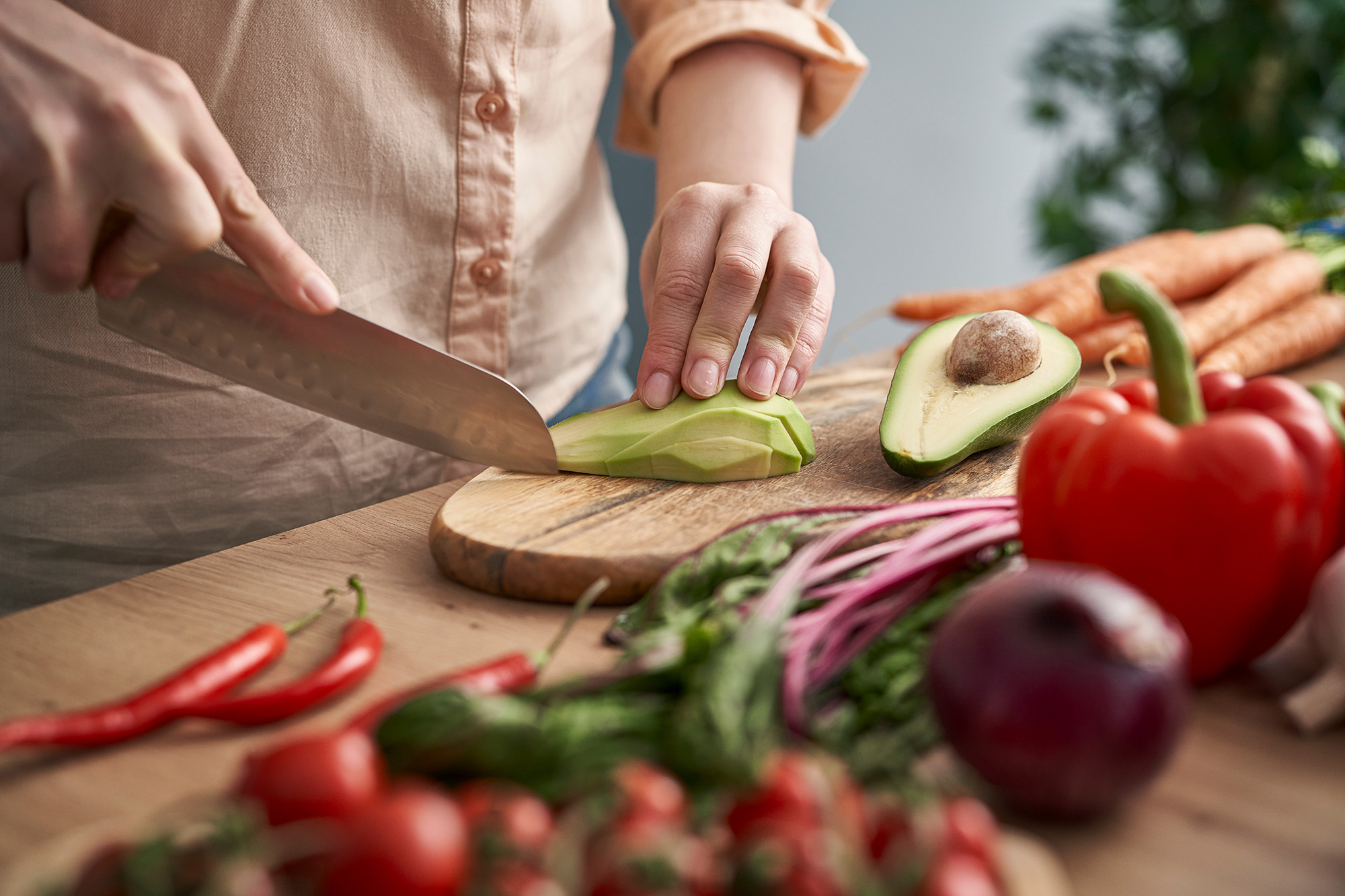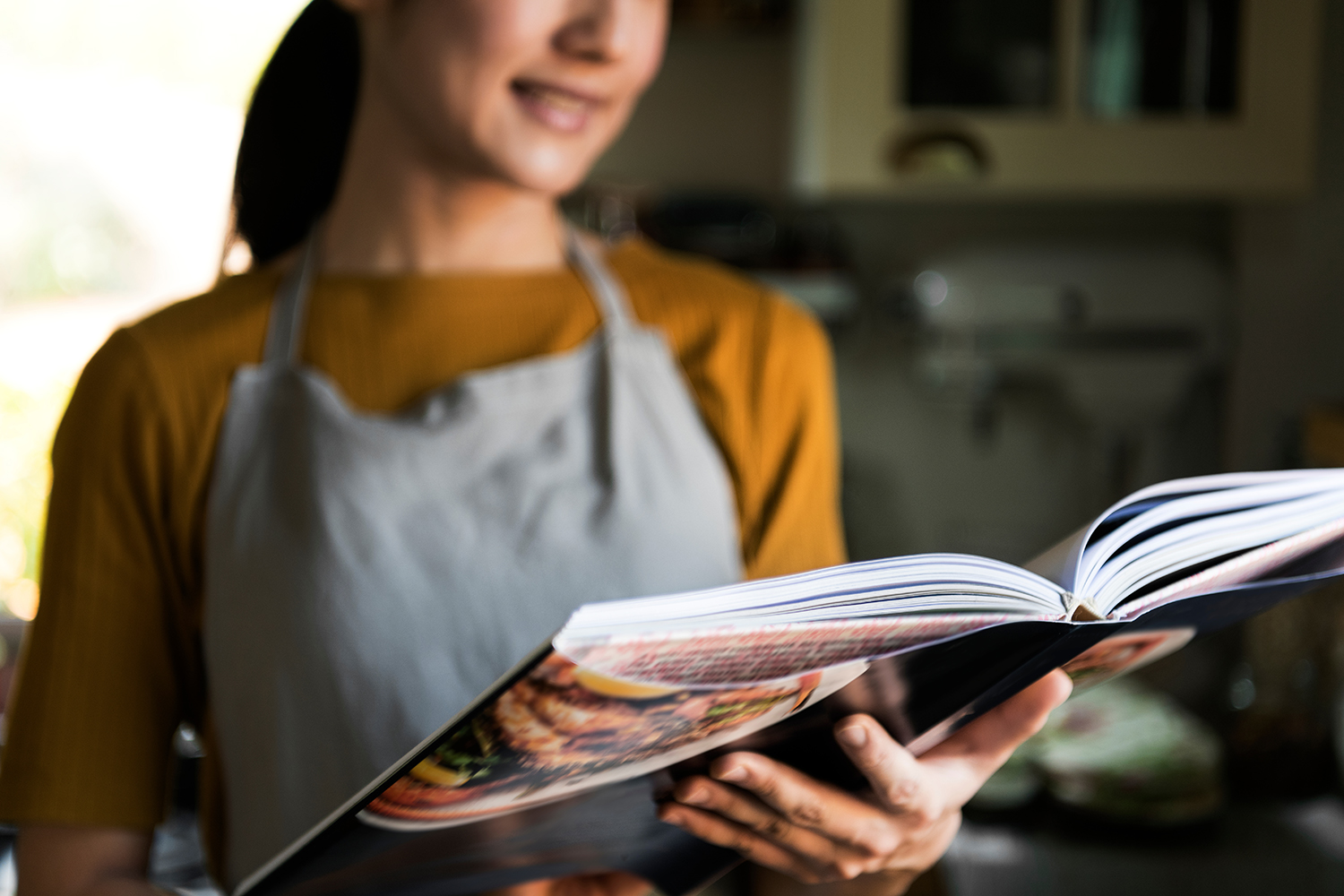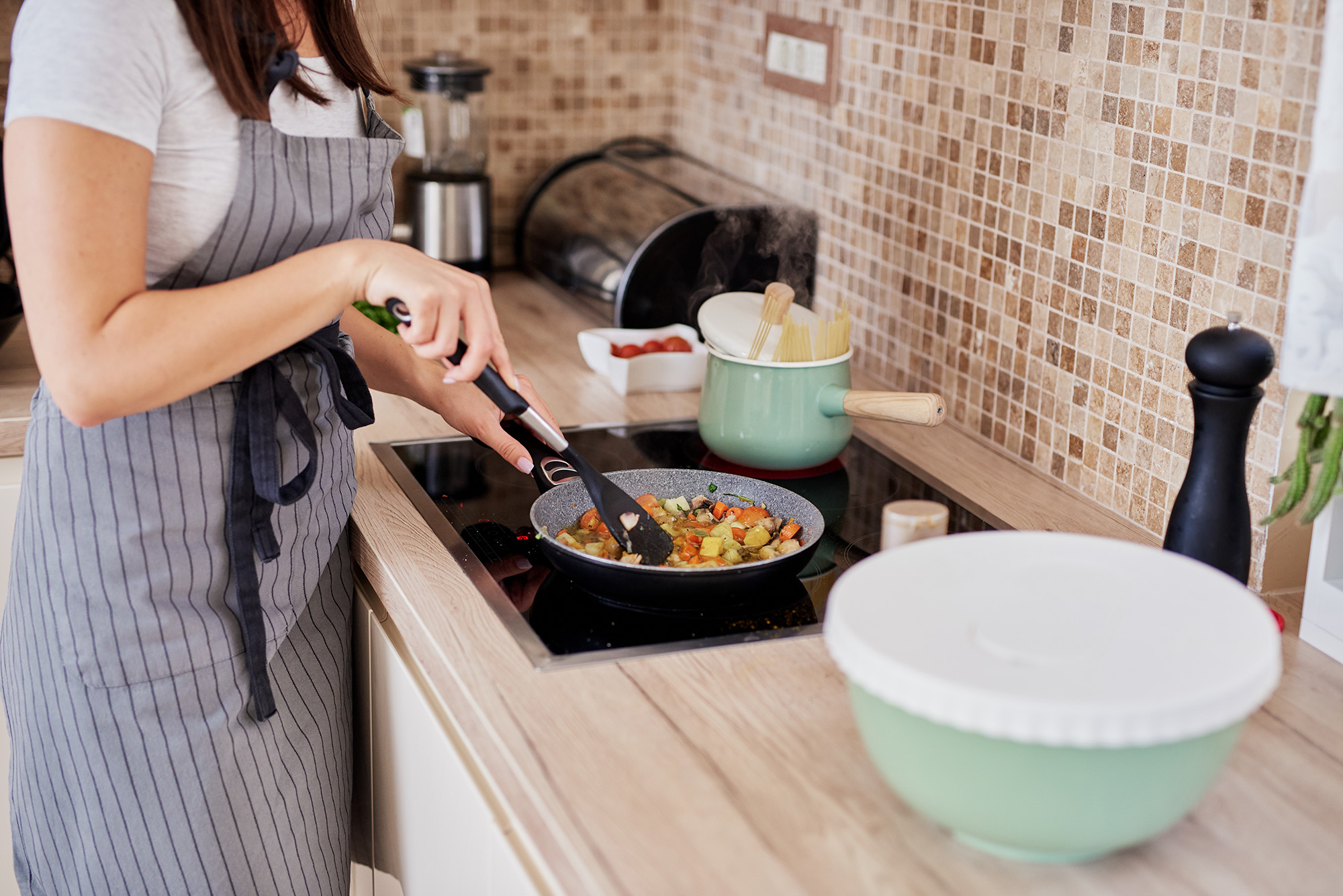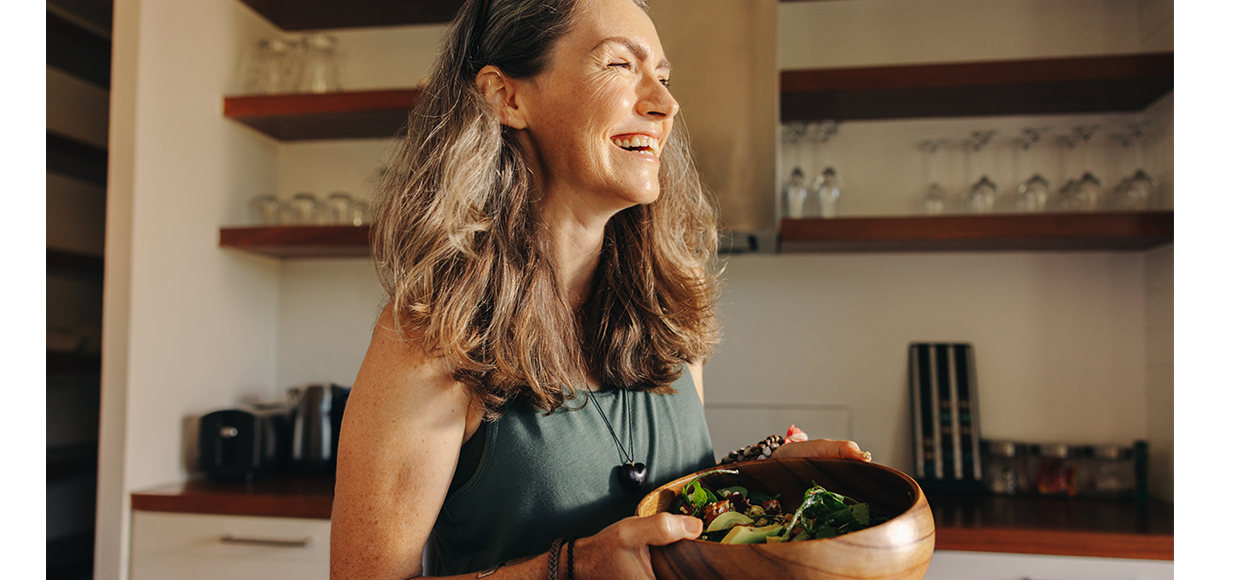Whether you’re enjoying some freshly baked biscuits or sharing a meal at the dinner table with family and friends, eating makes us feel good.
It’s comfort in a bowl – we give food to loved ones going through a hard time, and scoop into a tub of ice cream if we’re having a bad day. Cooking can also comfort – it’s an act that helps meet the basic need of fuelling yourself with food, but the benefits go far beyond that… Cooking for yourself has been linked to increased happiness, relaxation, greater self-awareness, boosted self-confidence, and more.
The benefits of cooking for yourself
Establish a routine
Scheduling a time to cook for yourself or your family/household each night increases your chances of eating well – rather than ordering fast food as a convenient, last-minute option. Create a habit of it, add it to your routine, and your mental health will benefit; research suggests that routine is particularly important for those recovering from addiction, needing to replace bad habits.
Our circadian rhythm can benefit, too. Cooking dinner at a certain time each night can signal that it’s time to switch off and relax, regulating the stress hormone cortisol and melatonin – the hormone that controls our sleep-wake cycle.

Feel empowered
Crafting a dish often requires measured ingredients and following step-by-step cooking instructions to achieve the desired, delicious result. Goal-oriented activity such as this can give you a sense of power! Learning a new skill or perfecting a recipe often provides a sense of accomplishment and pride. This can boost self-confidence and overall self-esteem, which are important for mental health.

Calm the mind
At the same time, the focus involved in crafting a dish can calm your mind.
The average person has approximately 60,000 thoughts per day, and creative activities such as cooking and baking have been compared to meditation with their need for focus and paying close attention to detail. They’re activities that can allow for a state of mindfulness, which has been shown to have numerous mental health benefits for the mind, including decreasing negative thoughts.
Plus, at the end, you’re presented with something to enjoy and share with others.
Connect with others
And that’s another benefit of cooking! There’s always something special when things have been homemade with love. Many family gatherings centre around food: birthdays, celebrations, barbecue get-togethers, festive feasts, Sunday night roasts. It brings people together, creating a sense of community and security – for yourself and others. Of course, cooking for others can also make them feel loved! You’ll feel good for making them feel this way, too.
Express creativity
Some might view cooking as a chore, but it can be a means of expressing creativity – just like painting, knitting, or playing an instrument. Like these activities, you can get into the ‘flow’ of cooking and boost feel-good dopamine and reduce anxiety – a study from 2016 found that people who frequently take on small, creative projects such as baking or cooking report feeling more relaxed and happier in their everyday lives.
Psychologists have also reportedly started spending more time exploring cooking and baking as a therapeutic tool to help people deal with depression and anxiety.
The food-mood connection
Of course, what we cook and eat also impacts our physical and mental wellbeing. It’s no secret that food provides us essential nutrients and fuels our bodies – certain foods have the power to regulate our mood, while others can make it worse.
For example, foods rich in nutrients such as omega-3, complex carbohydrates and amino acids – think fish, nuts and seeds, whole grains, vegetables and legumes – can boost our mood by promoting the production of serotonin, a neurotransmitter that regulates mood, appetite and sleep. On the other hand, foods that are high in sugar, refined carbohydrates and saturated fats can cause our blood sugar levels to spike and then crash, leading to feelings of anxiety, irritability and fatigue – common culprits in this category include highly processed snacks, sugary drinks, and fast food.
While factors such as genetics and lifestyle can also influence our health, the link between our food and mood shouldn’t be dismissed.
As Dr Ginni Mansberg explains in her book Save Your Brain (Allen & Unwin, $38, see more on page 105), there are two pathways in which what we eat impacts our brains.
“Eating healthy foods means our body can benefit from ingredients including antioxidants, vitamins, polyphenols and other nutrients. And some of these nutrients also have a critical role in brain function, immune system function and gene expression,” she says.
“And then there is the second – and possibly more interesting – pathway. Increasingly, the role of the bacterial bugs – and they can be both good and bad – in our gut (also known as our gut microbiota or sometimes the microbiome) is recognised as having a key role in the functioning of our physical and, subsequently, our mental health. Scientists now believe that a bad diet leads to a change in the microbiota, which then leads to inflammation – which is bad for our brains.”

Simple swaps for health and happiness
- Processed snacks for fresh fruit: Instead of reaching for a bag of chips or chocolate chip cookies, try snacking on fresh fruit. Bananas, in particular, are a good source
- of vitamin B6, tyrosine and tryptophan, which are all essential to make feel-good neurotransmitters dopamine and serotonin.
- Sugary drinks for water or herbal tea: Instead of drinking soft drinks or energy drinks, focus on drinking your daily 6-8 glasses of water. If you’d like something flavoured, try herbal tea or fruit-infused water. Sugary drinks can cause your blood sugar to spike and then crash, leading to feelings of fatigue and irritability.
- Alcohol for matcha: High in flavonoids and L-theanine, matcha has relaxing effects on the body. L-theanine is particularly helpful for combatting high levels of stress and anxiety, increasing relaxation without causing drowsiness. With a low level of caffeine, matcha can also gradually boost your energy. Of course, you also won’t experience the same impact of alcohol the next day!
- Refined carbohydrates for whole grains: Instead of eating refined carbohydrates such as white bread, pasta, or white rice, try eating whole grains such as quinoa, brown rice, or whole-wheat bread.
- Whole grains are rich in fibre, vitamins and minerals that can help stabilise your blood sugar and improve your mood.
Mindful eating
Those sugar-laden, high-fat comfort foods that we crave when we’re stressed and depressed can often cause more harm than good – instead of making us feel better, they can have the opposite impact on our mental health if we’re not careful.
Some people eat less in the face of strong emotions, while others turn to impulsive emotional eating. The food can act as a distraction and although it can be difficult, it’s important to be mindful of what you’re eating, and how much – pause and concentrate on the food you’re eating rather than mindlessly watching TV or scrolling at the same time.
Here are some tips to avoid eating too much when you’re stressed:
- Don’t skip meals during the day and drink plenty of water. This has been shown to decrease hunger.
- Eat slowly and savour small bites. You’ll experience the food’s flavours and be more likely to recognise when you’re feeling satisfied.
- Stretch out on the yoga mat. Studies indicate that yoga can help encourage healthy eating habits and reduce the risk of emotional eating.
- Shift your mindset. If you usually reach for a chocolate bar in times of stress, try to break that habit by instead reaching for something that will be more nourishing. It’s also important to pause and sit with our emotions – what are we feeling and why? Acknowledging this can help long-term.







